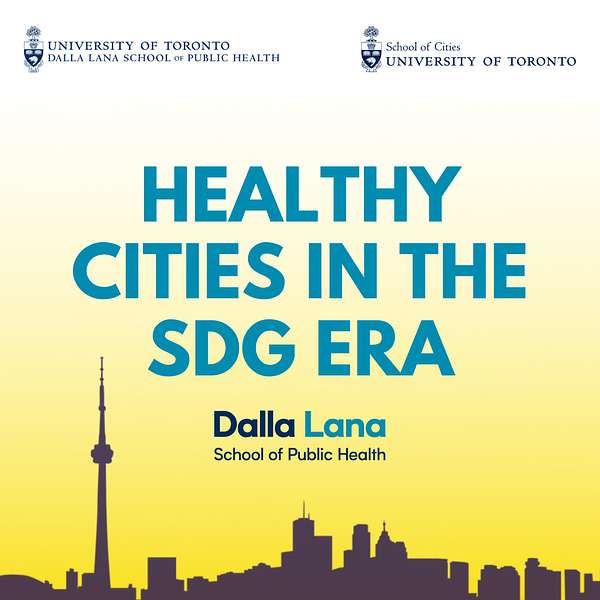
Healthy Cities in the SDG Era
Healthy Cities in the SDG Era
20. The Finale
Use Left/Right to seek, Home/End to jump to start or end. Hold shift to jump forward or backward.
In this final episode, we will look at the intersection between SDG 3: Good Health and Wellbeing and SDG 11: Sustainable Cities and Communities.
The focus of SDG 11 is to make cities and human settlements inclusive, safe, resilient, and sustainable while the focus of SDG 3 is to ensure healthy lives and promote well-being for all at all ages.
Leonard Mwesigwa is a 2nd Year Ph.D. Student in Planning at the University of Toronto and a Founder/CEO of Inclusive Green Growth Uganda (IGGU), an NGO based in Uganda whose vision is “A prosperous Africa based on inclusive growth and sustainable development”. Leonard was born & raised in Uganda. He is a Professional Civil Engineer with a Bachelor of Engineering in Civil & Building Engineering, Kyambogo University, Uganda; Master of Science in Transport Planning & Engineering, Newcastle University, UK; Master of Business Administration from Heriot-Watt University, UK and a Postgraduate Diploma in Project Planning & Management from Uganda Management Institute.
He has worked in both private and public sector organizations for over 10 years and on several urban policy design and urban infrastructure development projects. Notably as a Senior Urban Transport Planner at Kampala Capital City Authority (KCCA) for over 6 years, he oversaw and participated in several city road designs and construction projects. As a practicing Urban Transport Planner, he is passionate about developing equitable and sustainable urban transit systems in the Global South. His Ph.D. research aims at examining the potential use of Public-Private Partnerships (PPPs) in delivering socially inclusive and equitable urban transit systems in rapidly urbanizing African cities.
Karen Chapple, Ph.D., is the Director of the School of Cities at the University of Toronto, where she also serves as Professor in the Department of Geography and Planning. She is Professor Emerita of City & Regional Planning at the University of California, Berkeley, where she served as department chair and held the Carmel P. Friesen Chair in Urban Studies. Chapple studies inequalities in the planning, development, and governance of regions in the U.S. and Latin America, with a focus on economic development and housing.
Chapple is currently engaged in many research projects related to inequality and sustainability planning, with a focus on residential and commercial/industrial displacement. Since 2006, she has served as faculty director of the UC Berkeley Center for Community Innovation, which has provided over $2 million in technical assistance to community-based organizations and government agencies. This has included research on the potential for gentrification and displacement near transit-oriented development (for the Association of Bay Area Governments); more effective planning for affordable housing and economic development near transit (for the Great Communities Collaborative); the relationship between the arts, commercial and residential revitalization in low-income neighborhoods; and the role of green jobs and industrial land in regional economies.
Chapple holds a B.A. in Urban Studies from Columbia University, an M.S.C.R.P from the Pratt Institute, and a Ph.D. from UC Berkeley. Prior to academia, Chapple spent ten years as a practicing planner in economic development, land use, and transportation in New York and San Francisco.